Breast Cancer Awareness Month
Muscogee (Creek) Nation Department of Health: Public Health Nursing
The Breast Cancer Awareness Month, marked in countries across the world every October, helps to increase attention and support for the awareness, early detection and treatment as well as palliative care of this disease.
• Each year in the United States, more than 240,000 women get breast cancer and more than 40,000 women die from the disease
• Men also get breast cancer, but it is not very common. Less than 1% of breast cancers occur in men.
• Most breast cancers are found in women who are 50 years old or older, but breast cancer also affects younger women. About 10% of all new cases of breast cancer in the United States are found in women younger than 45 years of age.
What You Need to Know
Cancer is a disease in which cells in the body grow out of control. When cancer starts in the breast, it is called breast cancer.
Breast cancer screening is simply checking a woman’s breasts for cancer before she has any symptoms. Although breast cancer screening cannot prevent breast cancer, it can help find breast cancer early, when it is easier to treat.
Talk to your doctor about which breast cancer screening tests are right for you, and when you should have them.
Some breast cancer screening test includes:
Mammogram: A mammogram is an X-ray picture of the breast. Mammograms are the best way to find breast cancer early, when it is easier to treat and before it is big enough to feel or cause symptoms. Having regular mammograms can lower the risk of dying from breast cancer. At this time, a mammogram is the best way to find breast cancer for most women.
Breast Magnetic Resonance Imaging (MRI): A breast MRI uses magnets and radio waves to take pictures of the breast. MRI is used along with mammograms to screen women who are at high risk for getting breast cancer. Because breast MRIs may appear abnormal even when there is no cancer, they are not used for women at average risk.
A Clinical Breast Exam: this is an examination by a doctor or nurse, who uses his or her hands to feel for lumps or other changes.
Breast Self-Awareness: Being familiar with how your breasts look and feel can help you notice symptoms such as lumps, pain, or changes in size that may be of concern. These could include changes found during a breast self-exam.
You should report any changes that you notice to your doctor or health care provider. Having a clinical breast exam or doing a breast self-exam has not been found to lower the risk of dying from breast cancer.
Most women who are 50 to 74 years old should have a screening mammogram every two years. If you are 40 to 49 years old, or think you may have a higher risk of breast cancer, ask your
doctor when to have a screening mammogram.
Some things may increase your risk factors that influence breast cancer risk are being a woman and getting older.
Other risk factors include:
• Changes in breast cancer-related genes (BRCA1 or BRCA2).
• Having your first menstrual period before age 12.
• Never giving birth, or being older when your first child is born.
• Starting menopause after age 55.
• Taking hormones to replace missing estrogen and progesterone in menopause for more than 5
years.
• Taking oral contraceptives (birth control pills).
• A personal history of breast cancer, dense breasts, or some other breast problems.
• A family history of breast cancer (parent, sibling, or child).
• Getting radiation therapy to the breast or chest.
• Being overweight, especially after menopause.
Symptoms
Some warning signs of breast cancer are—
• New lump in the breast or underarm (armpit).
• Thickening or swelling of part of the breast.
• Irritation or dimpling of breast skin.
• Redness or flaky skin in the nipple area or the breast.
• Pulling in of the nipple or pain in the nipple area.
• Nipple discharge other than breast milk, including blood.
• Any change in the size or the shape of the breast.
• Pain in the breast.
(Other conditions can cause these symptoms. If you have any signs that worry you, call your
doctor right away.)
For more information about breast cancer contact you primary care provider and go to www.cdc.gov/cancer/breast/ or https://www.cdc.gov/cancer/breast/basic_info/screening.htm

;)